- Home
- Tony Parsons
Silver in the Sun
Silver in the Sun Read online
Silver in the Sun
A. D. (Tony) Parsons has worked as a professional sheep and wool classer, an agricultural journalist, a news editor and rural commentator on radio, a consultant to major agricultural companies, and an award-winning stud breeder of animals and poultry. He owned his first kelpie dog in 1944, and in 1950 he established ‘Karrawarra’, one of the top kelpie studs in Australia. In 1992 he was awarded the Order of Australia Medal for his contribution to the propagation of the Australian kelpie sheepdog.
Since 1947 he has written hundreds of articles, many in international publications. His technical publications include Understanding Ostertagia Infections in Cattle, The Australian Kelpie, The Working Kelpie and Training the Working Kelpie, now regarded as classic works on the breed. His previous novels are the bestselling The Call of the High Country, Return to the High Country and Valley of the White Gold.
Tony lives with his wife not far from Toowoomba in Queensland and successfully showed merino sheep and wool until 2005. He still maintains a stud of kelpies.
Also by Tony Parsons
The Call of the High Country
Return to the High Country
Valley of the White Gold
TONY PARSONS
Silver
in the
Sun
VIKING
an imprint of
PENGUIN BOOKS
VIKING
Published by the Penguin Group
Penguin Group (Australia)
250 Camberwell Road, Camberwell, Victoria 3124, Australia
(a division of Pearson Australia Group Pty Ltd)
Penguin Group (USA) Inc.
375 Hudson Street, New York, New York 10014, USA
Penguin Group (Canada)
90 Eglinton Avenue East, Suite 700, Toronto, Canada ON M4P 2Y3
(a division of Pearson Penguin Canada Inc.)
Penguin Books Ltd
80 Strand, London WC2R 0RL England
Penguin Ireland
25 St Stephen’s Green, Dublin 2, Ireland
(a division of Penguin Books Ltd)
Penguin Books India Pvt Ltd
11 Community Centre, Panchsheel Park, New Delhi – 110 017, India
Penguin Group (NZ)
67 Apollo Drive, Mairangi Bay, Auckland 1310, New Zealand
(a division of Pearson New Zealand Ltd)
Penguin Books (South Africa) (Pty) Ltd
24 Sturdee Avenue, Rosebank, Johannesburg 2196, South Africa
Penguin Books Ltd, Registered Offices: 80 Strand, London, WC2R 0RL, England
First published by Penguin Group (Australia), 2007
Copyright © Anthony Parsons 2007
The moral right of the author has been asserted
All rights reserved. Without limiting the rights under copyright reserved above, no part of this publication may be reproduced, stored in or introduced into a retrieval system, or transmitted, in any form or by any means (electronic, mechanical, photocopying, recording or otherwise), without the prior written permission of both the copyright owner and the above publisher of this book.
www.penguin.com.au
ISBN: 978-0-85-796722-0
Oven-hot the sun beats down,
Through silver leaves of silver trees.
TONY PARSONS
Do the shearers still go riding up the Warrego to work,
Where the Thurulgoona woolshed flashes silver in the sun?
Is there racing at Enngonia? Is Belalie still a run?
Do the Diamantina cattle still come down by Barringun?
W. H. OGILVIE
For there’s haste and there is hurry when the Queensland sheds begin;
On the Bogan they are bridling, they are saddling on the Bland.
There is plunging and there’s sidling – for the colts don’t understand
That the Western creeks are calling, and the idle days are done,
With the snowy fleeces falling, and the Queensland sheds begun!
W. H. OGILVIE
Author’s Note
Two themes were foremost in my mind as I wrote this novel. The first concerns the promotion and marketing of Australian merino wool to the rest of the world. The Australian wool industry’s inability, up to now, to manage a professional marketing campaign has led to a massive downturn in sheep numbers, especially in Queensland (where this story is set), where they fell from a peak of twenty-two million to a current low of five million.
The second theme explores the problem of declining rural populations and, I hope, acknowledges the efforts of many people to promote their towns and villages through projects such as the Spirit of the Bush and Tidy Towns, to name just two.
Silver in the Sun also touches on the importance of medical research. Australia has had, and still has, some of the world’s most brilliant medical researchers, yet public money allocated to this field is, to say the least, scant. Successive federal governments have thrown money into far less deserving areas, while medical research projects operate on shoestring budgets. The fact that researchers have achieved so much with so little says volumes for their ability and dedication.
While on the subject of medical research, my first acknowledgement must go to the Commonwealth Serum Laboratory’s toxicologist, the late Dr Struan Sutherland, whose epic work to produce an antivenom for the funnel-web spider brought him world recognition. This remarkable man also invented the pressure immobilisation technique of first aid for snakebite, and developed a venom detection kit to enable doctors to ascertain which antivenom should be administered to a snakebite victim. I am indebted to Dr Sutherland and Dr James Tibballs for their paper ‘Management of Snake Bites in Australia and New Guinea’, which was written for the Royal Flying Doctor Service in 2002.
It would be impossible to calculate the cost of snakebite to Australia’s agricultural industry. I have lost valuable working dogs, some irreplaceable because of their breeding, and I’m sure thousands of other livestock owners could say the same. Horses are particularly vulnerable to snakebite. I lost my last mare in this fashion. Of course, there’s also the human cost of encounters with these reptiles. I’ve had three narrow escapes myself. According to the noted snake handler Ram Chandra, only one person had ever survived a taipan bite before an antivenom was developed.
Three people deserve particular thanks for their contribution to my imperfect knowledge of Australian parrots. The first is Mr Roger Turnbull, Senior Wildlife Ranger with Queensland Parks and Wildlife, who gave me the whys and wherefores for the keeping of parrots. Mr Des English, President of the Downs Bird Breeders Association, filled me in on the care and feeding of various parrot species; and noted bird expert Mr Bob Branston of Hannam Vale, New South Wales, gave me a considerable amount of information about the peculiarities of some parrots and why certain species can’t be housed together. Bob also gave me some valuable advice about the rarest and most endangered species.
Bill and Rosemary Benjamin of Clifton, and Peter and Ruth Harvey of Highfields, reminisced with me about their sojourns on the Queensland merino stud properties Burenda and Terrick Terrick respectively. In our declining years, Peter and yours truly showed sheep and wool at the same shows and Peter often transported my sheep. He is one of nature’s gentlemen.
I was very fortunate to meet Jenny Milson of Longreach, the author of a book on Queensland vegetation. Jenny made it her business to find and photograph for me the ‘silveriest’ trees she could find on her trips around Queensland’s ‘big’ pastoral country. Very many thanks, Jenny.
My daughter, Holly, found time to produce a map of the layout of Kanimbla homestead and its outbuildings, which to some extent mirrors properties known to me. She’s a busy person, so I’m very appreciative of her input.
I
must also thank Toowoomba motelier Mr Bill Klaassen for his advice regarding motel construction. Over the years he has been the proprietor of several motels, sometimes building them from scratch. Bill is a very knowledgeable man in this field and a good friend too.
Once again the Penguin team have been great, including publishers Ali Watts and Kirsten Abbott, and editors Nicci Dodanwela (who almost had her first baby at her desk) and Miriam Cannell. Producing the cover is always a challenging task, and designer Karen Trump went to great lengths to ensure that the book had visual appeal. They’re a special team and they all have special gifts. They make a difference.
A. D. (Tony) Parsons, OAM
East Greenmount, Queensland
Prologue
The mirage floated endlessly – a lake across the dull grey of the western road. Ian noticed that it had been with them from early morning, and while the country had changed, the lake remained – always suggesting the possibility of water, yet always receding before their gaze. Timber changed with the soil, from gidgee and false sandalwood to whitewood and boree on the Mitchell grass country and then to mulga on the red soil further west. Magpies warbled and crows cawed, pecking imperiously at the carnage of dead roos beside the road.
And then as suddenly as it had appeared, the lake vanished. To the right of the coach a long line of red gums masked for a time a lovely stretch of river. The road crossed a bridge, swung away slightly to the north-west and the township of Murrawee was before them.
To Ian, the little town looked much like many others he had passed, except for the trees in the paddock on its outskirts – two silver-leafed trees growing in the red soil, the sun shining down on them at just the right angle to make the leaves shimmer.
Chapter One
The big brown and gold coach stopped in front of the shop, on a wide bitumen road with verges of yellow-red sandy soil. In the days when there was a rail service, most visitors to Murrawee came by train, and there was always a noisy throng awaiting its arrival. But this was the first decade of the twenty-first century, and many Queensland rail links were no longer used; just about everyone owned a vehicle and road transports carted the essential freight.
A corrugated iron verandah shaded the footpath outside the shop and kept the gentle August sun off the window. In this shade, an old black kelpie with one flop ear lay asleep on a corn sack. The dog lifted its grey muzzle and briefly inspected the single passenger alighting from the coach, before returning to sleep. ‘Moss’ had once been a very good sheepdog, but after ten years of hard work in murderously hot paddocks, his owners had retired him to end his days in town.
The passenger watched as the coach driver pulled a large leather suitcase and army-style kitbag from the luggage compartment beneath the coach and dropped them at his feet. ‘Be seeing ya, young fella,’ the driver said as he slammed the compartment door shut and climbed back into the coach.
Several bored-looking passengers gazed at the tall, fair young man for the last time before the coach pulled away. A well-groomed elderly woman, who had been sitting across the aisle from the young man, sighed. Watching him heave his kitbag over his shoulder she was reminded of the good-looking young man she had married. Occasionally – very occasionally these days – you struck a man with real class. This young fellow had heaps of it, and she wondered what he was doing in this backwater. He must be the son of a grazier, she thought, or perhaps he had a girlfriend who was a grazier’s daughter. She sighed again and wished it were possible to roll back the years.
The young man watched the coach disappear into the distance before turning and looking into the shop window. A fly-specked square of yellow cardboard proclaimed in faded red letters that the shop was the depot for McCafferty’s Coach Services. According to a large overhead sign, the place was also a café.
Perennially hungry, he turned from his inspection of the window and was about to ascend the two steps into the café when a stout, dark-haired woman appeared in the doorway. The woman’s keen brown eyes appraised the new arrival. She observed that he was very tidily dressed in well-cut dark grey corduroy trousers, a light-coloured shirt with dark blue tie and a navy jumper.
‘G’day,’ she said by way of greeting. ‘Have a good trip?’
‘It was all right, thank you,’ the boy answered.
Nice accent, Helen Donovan thought, obviously English and educated, but not posh. Aloud she said, ‘Old Leo’s laid up with a crook foot and he’s asked one of the neighbours to pick you up and take you out to Kanimbla. They’ll be an hour or so yet ’cause they’re at a sheep sale. Leo said for you to wait here and have a feed with us.’
The boy looked at her and nodded. ‘Thanks. I don’t mind waiting. Is Mr Blake hurt badly?’
‘I think he might have broken a bone or two in his ankle – it’s in plaster. It’s his right foot so he can’t drive,’ the shopkeeper explained.
‘I see. I’d appreciate some lunch if that’s all right,’ the boy said.
‘Right as rain. You can have steak or chops or a mixed grill or snags with vegies or salad, or plain cold meat and salad.’ And in the next breath, ‘What am I going to call you?’ She knew he was more than a jackaroo or station hand and that he was related to Jack Richardson, who’d owned the biggest property in the district – Kanimbla.
‘Ian,’ he said. ‘Just call me Ian.’
‘If that’s all right,’ she said.
‘It’s all right. Why shouldn’t it be?’
‘We-ell … Jack Richardson was always Mr Richardson and you’re a relation, aren’t you?’ she asked.
‘I’m a relation but I don’t want or expect to be called Mister,’ he said. ‘I’ll have some steak and salad, please.’
‘Would you like a drink of something while you’re waiting?’ she asked. ‘Maybe an orange juice or a squash?’
‘An orange juice would be great,’ Ian said. ‘Are you here on your own?’
‘Most of the time. I’ve got a daughter that comes and helps with the cooking at busy times. My husband has the mail run. Done it for twenty years. Ray’ll be back later on,’ she explained.
Ian nodded. ‘Does he take the mail to Kanimbla?’
‘Yeah, twice a week, Tuesdays and Fridays. The mail and just about anything else that anybody wants delivered.’
The woman retreated into the recesses of the shop to reappear with a tall glass of orange juice. She put it down on a yellow plastic-topped table and the boy smiled his thanks and sat down. ‘I’ll be back before long with your lunch – er – Ian.’
‘Thank you.’
But Helen Donovan lingered to look down at the young man as he took his first sip of juice. ‘Did you know Jack and Linda Richardson?’ she asked.
‘I knew them, but I can’t say I knew them very well. I met them three or four times. The first time was after my parents were killed, when I was eight. They met me when I arrived in Sydney. That was before I went out to Warren. Uncle Jack got me that position.’
If he had been asked for his opinion of his uncle, he would have had some difficulty framing a diplomatic answer. Jack was unfailingly friendly and generously concerned for his nephew’s welfare in Australia, but Ian was never really comfortable in his uncle’s company. It seemed to him that his Uncle Jack had an attitude problem. He projected an image of class superiority that did not go down well. He had great looks, a voice that had retained its educated cultivation, and the trappings of a very wealthy man, but there was an urgency about the way he lived that disturbed Ian. It seemed that despite the favourable circumstances of his life, his Uncle Jack was one of the most discontented people Ian had ever met. He had a higher opinion of his aunt than his uncle, with the reservation that she seemed perfectly happy to follow wherever her husband wished to go. But Linda Richardson was childless, and her husband had become her life.
Helen Donovan thought that she had never met such a well-mannered young man. Most of the young blokes who came into the café were polite enough but likely to be half-drunk. Sh
e was dying to find out all she could about Ian because the district was still agog at the recent death of the Richardsons in a light plane crash. They had no children and the great property’s future was the major item of interest in the district. Would it be put on the market? Even Leo Blake, who had been Jack Richardson’s right-hand man, couldn’t tell them who owned the property now. The rumour was that it had been left to the Anglican Church.
After grilling Ian’s steak and putting together a salad, Helen Donovan, ostensibly dusting the shop shelves, watched as he ate his lunch. He ate quite slowly and carefully, which was not at all how most of the young men ate when they rushed in for lunches or evening meals. They usually devoured their food, talking as they ate. They didn’t play up too much because Helen was known far and wide as a woman who could give as good as she got. Then there was the fact that Ray Donovan was a very tough man who had fought in the ring. Singly, or as a pair, Ray and Helen Donovan spelt trouble for any young fellow who stepped out of line. But they didn’t mind a bit of good-humoured chiacking. And the young blokes helped to keep the café afloat. Helen felt sorry for them, really. No wonder they spent their evenings drinking – Murrawee didn’t have much to offer young people any more.
‘Would you like anything else?’ Mrs Donovan asked when she saw that Ian had put his knife and fork together on his plate. The young man intrigued her. He was hardly more than a boy, yet he wasn’t a boy. There was a quiet dignity about him that suggested a maturity beyond his years. And, like just about every resident of any Australian country township, Helen Donovan had a lively curiosity. The café was the major source of gossip and information in Murrawee and people would expect her to know more than anyone else about Kanimbla and its future. This was her chance to glean some vital info.
The young man looked up at her and smiled gently. ‘It was delicious, thank you. And no, I don’t need anything else. I’m not used to having dessert in the middle of the day.’

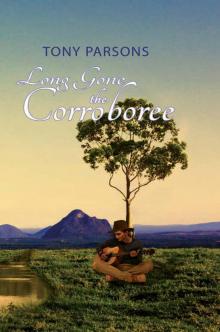 Long Gone the Corroboree
Long Gone the Corroboree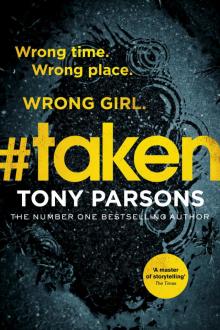 #taken
#taken The Family Way
The Family Way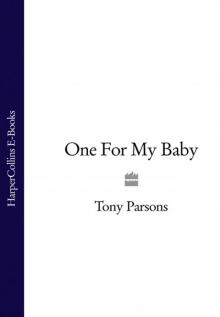 One For My Baby
One For My Baby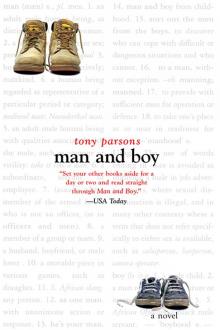 Man and Boy
Man and Boy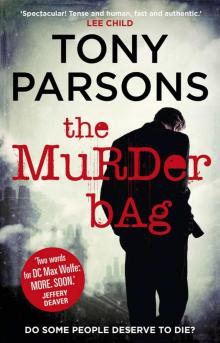 The Murder Bag
The Murder Bag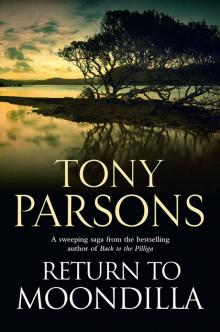 Return to Moondilla
Return to Moondilla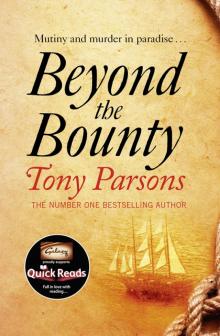 Beyond the Bounty
Beyond the Bounty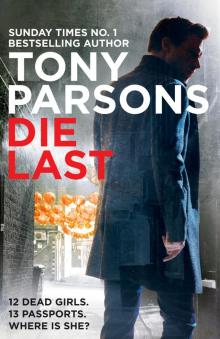 Die Last
Die Last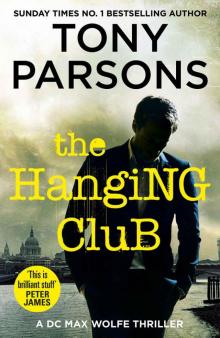 The Hanging Club (DC Max Wolfe)
The Hanging Club (DC Max Wolfe)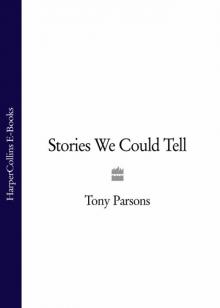 Stories We Could Tell
Stories We Could Tell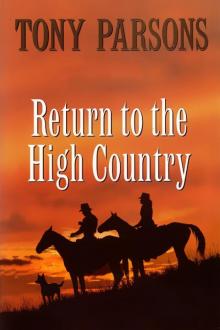 Return to the High Country
Return to the High Country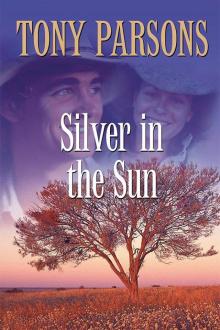 Silver in the Sun
Silver in the Sun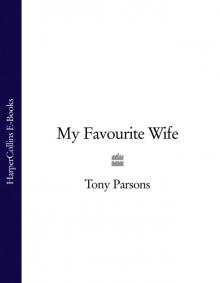 My Favourite Wife
My Favourite Wife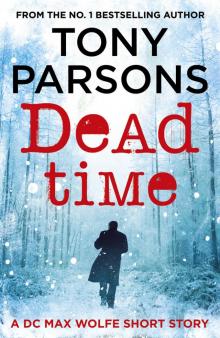 Dead Time
Dead Time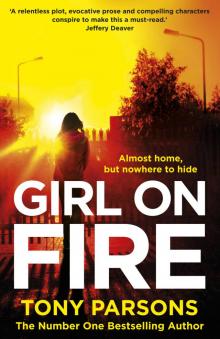 Girl On Fire
Girl On Fire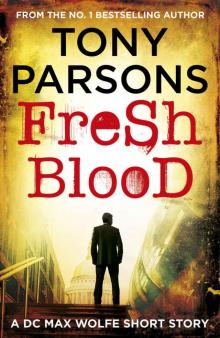 Max Wolfe 02.5 - Fresh Blood
Max Wolfe 02.5 - Fresh Blood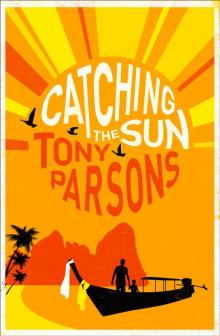 Catching the Sun
Catching the Sun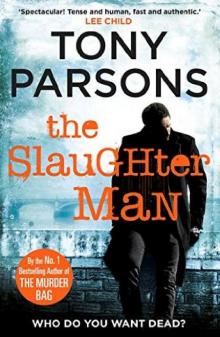 The Slaughter Man
The Slaughter Man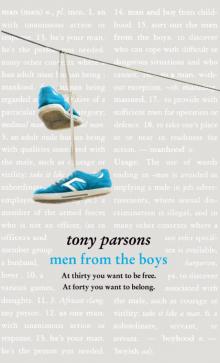 Men from the Boys
Men from the Boys Man and Wife
Man and Wife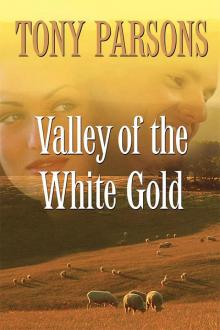 Valley of the White Gold
Valley of the White Gold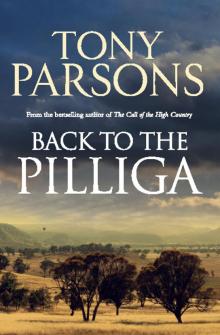 Back to the Pilliga
Back to the Pilliga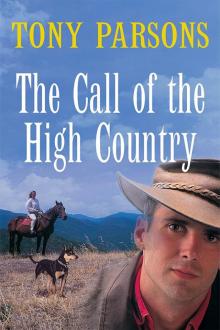 The Call of the High Country
The Call of the High Country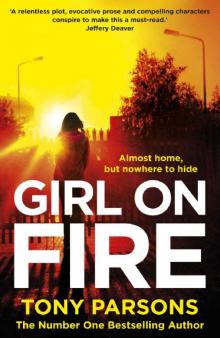 Girl On Fire_DC Max Wolfe
Girl On Fire_DC Max Wolfe